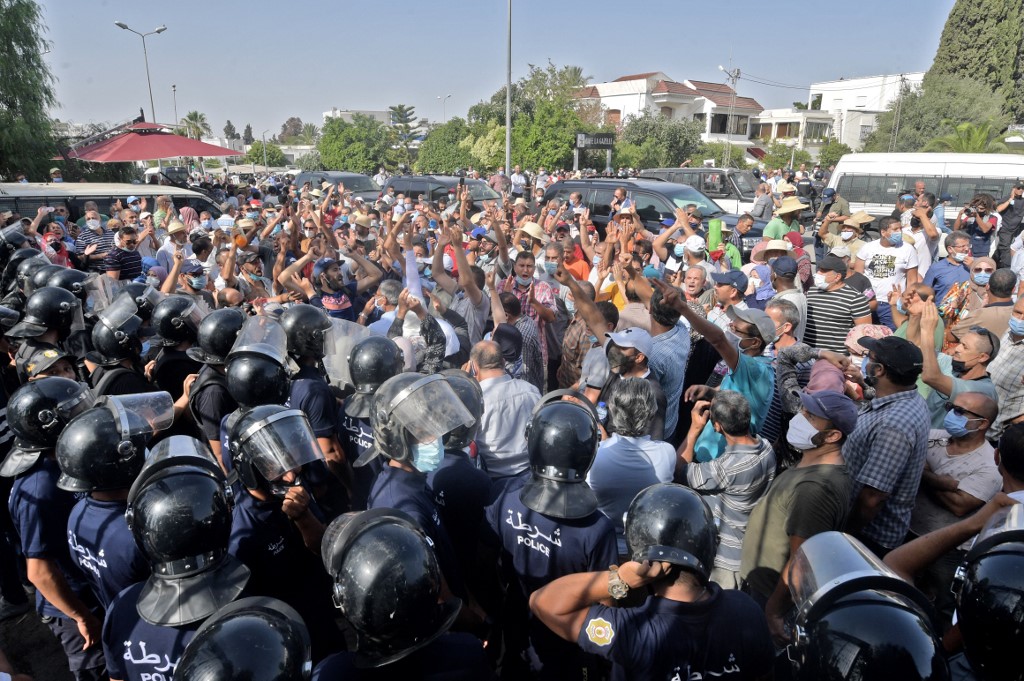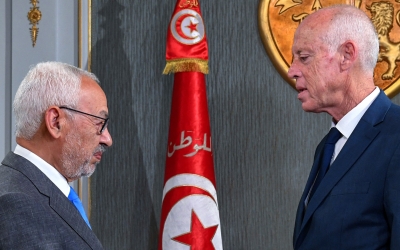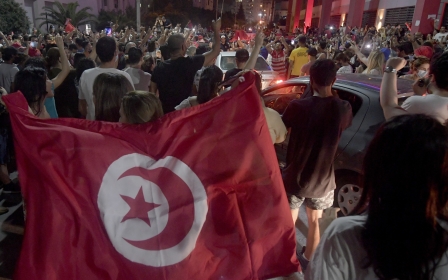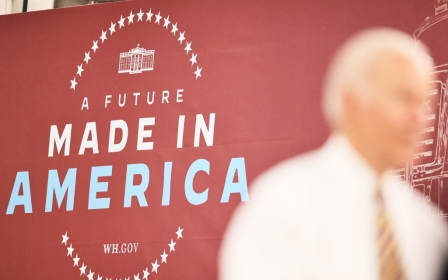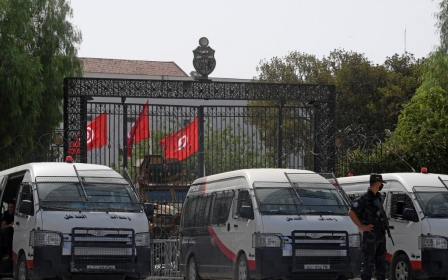Tunisia: Kais Saied's coup could see army step out of the shadows
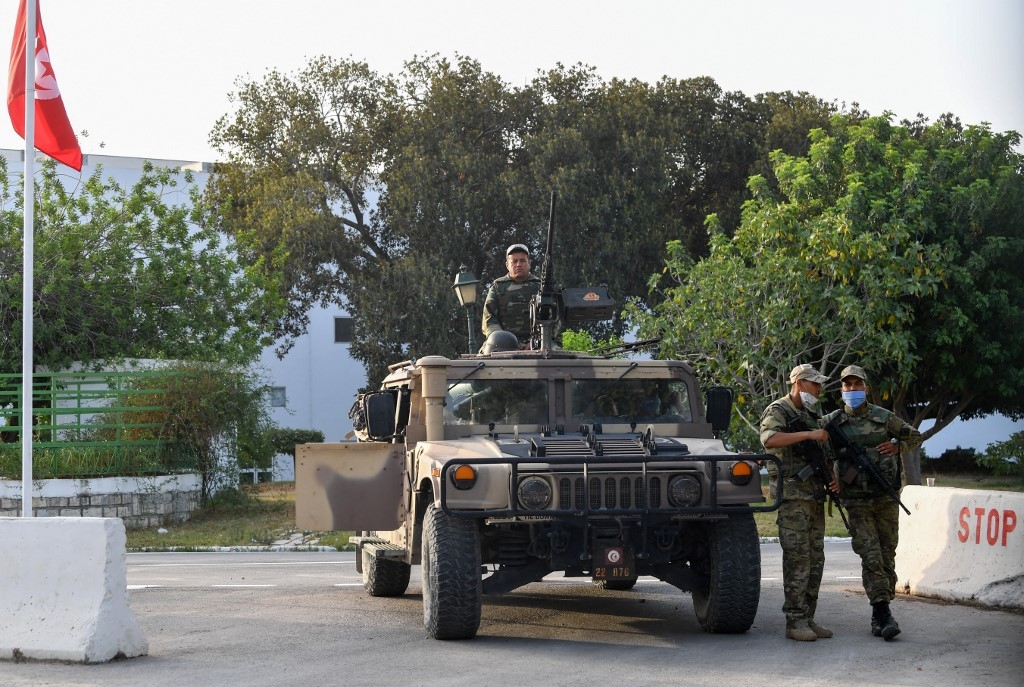
In 1962, a group of officers belonging to the Tunisian army attempted a failed military coup against then-president Habib Bourguiba. The officers were accused of being loyal to Salah ben Youssef, Bourguiba’s political rival, who was assassinated in Germany in 1961. After the failed coup attempt, Bourguiba executed key army officers.
Bourguiba insisted on sending army officers for training in France or the US, rather than military colleges in the Middle East, hoping their doctrine would be westernised and they would internalise the notion of the army as subordinate to civilian authorities, distancing themselves from Global South army models.
Tunisian military officers repeatedly called for Bourguiba to strengthen the army budget, but he maintained that the priority was economic development and building schools, universities and hospitals. Bourguiba believed that the friendship of the western axis would guarantee Tunisia’s national security needs, so there was no point in wasting money on artillery and tanks.
If there is no pressure on Saied to commit to a clear roadmap, we should not be surprised if the situation deteriorates
When the National Guard was established in 1957, it was part of the armed forces. Bourguiba separated it from the defence ministry and transferred it to the interior ministry, aiming to restrict cooperation between the defence ministry and the National Guard. His regime gave police the power to write reports on the army and expanded the influence of military intelligence in monitoring soldiers. Bourguiba’s goal was to reduce the expected threat of officers attempting a military coup.
In 1987, Zine El Abidine Ben Ali, then prime minister, carried out a “medical coup” against Bourguiba, after Tunisian doctors submitted a report declaring him to be in poor health. Ben Ali vowed to reconsider the army’s budget and expand its privileges. Having benefited from military training in France and the US, and boasting extensive experience in the security sector, he had also previously served as interior minister, expanding his internal influence. This paved the way for his coup.
New MEE newsletter: Jerusalem Dispatch
Sign up to get the latest insights and analysis on Israel-Palestine, alongside Turkey Unpacked and other MEE newsletters
After Ben Ali assumed power, he was worried that the army would carry out a coup against him, so he rounded up and tortured dozens of officers and soldiers. All were cleared years later of any wrongdoing, but at the time, the move strengthened Ben Ali’s power and authority.
Orders refused
All of this history had a role in limiting the Tunisian army’s activity in public affairs, making the country’s civil-military relations model completely different from that of Egypt or Algeria. There is no significant role for the Tunisian army in politics, and with regards to the constitution, there are no articles assigning the army any tasks related to political affairs.
Historically, the army has not participated in suppressing popular demonstrations with force. In fact, three events point to the army’s tolerance of such protests. In 1984, during the “bread uprising” demonstrations, orders were issued to suppress the demonstrations - but while police cracked down, the army held back.
Secondly, during the Tunisian revolution, Ben Ali reportedly gave orders to the army to bombard a Kasserine neighbourhood to suppress demonstrations, but the army refused.
Finally, in May 2017, when protesters in Tataouine came out against the deteriorating economy - storming an oil pumping station, blocking roads and burning police facilities - then-president Beji Caid Essebsi ordered the army to use force against demonstrators, but the army refused, and instead only secured the facilities.
The situation is completely different in Egypt, where the army plays a significant role in politics. The law explicitly provides for the army to confront demonstrations, with a recent amendment setting out the Egyptian military’s duty to “protect the constitution and democracy, and safeguard the basic components of the State and its civilian nature, and the people’s gains, and individual rights and freedoms”. It is clear that the army is the guardian of the civil state.
Potential for escalation
Today, President Kais Saied’s coup in Tunisia can be described as a constitutional coup - and it may later turn into a bloody escalation, if the Ennahda movement decides to confront or pressure regional forces in this direction. Saied relied on Article 80 of the country’s constitution, denying that he was enacting a coup - but his measures went far beyond the constitution, including storming media offices and preventing journalists from doing their jobs.
Beyond describing these events as a coup, a constitutional crisis or something else, the major problem lies in Saied’s unilateral seizure of power, and the absence of a clear roadmap laying out next steps, whether procedural or temporal. This threatens the return of authoritarianism in Tunisia, the elimination of pluralistic democracy, and further violations of human rights.
Saied’s decision to involve the army and police forces in his move may lead to a political role for the army and police in the days and months ahead.
While some sectors have welcomed Saied’s latest decisions, which could be understood as correcting the course of the revolution in order to hold the corrupt accountable, the major problem is that these procedures are not institutional. They are not in accordance with a clear roadmap, and there are no civilian components involved, which could mark a major setback for Tunisia.
Egyptian, Saudi and Emirati support for Saied’s measures is a dangerous indicator to which the Tunisian people, and the forces of change, must pay attention. This alliance is certainly not in favour of reform and revolution; quite the opposite. If there is no pressure on Saied to commit to a clear plan, we should not be surprised if the situation deteriorates, with police and security forces cracking down in the name of fighting terrorism or stabilising the state.
The views expressed in this article belong to the author and do not necessarily reflect the editorial policy of Middle East Eye.
Middle East Eye delivers independent and unrivalled coverage and analysis of the Middle East, North Africa and beyond. To learn more about republishing this content and the associated fees, please fill out this form. More about MEE can be found here.



